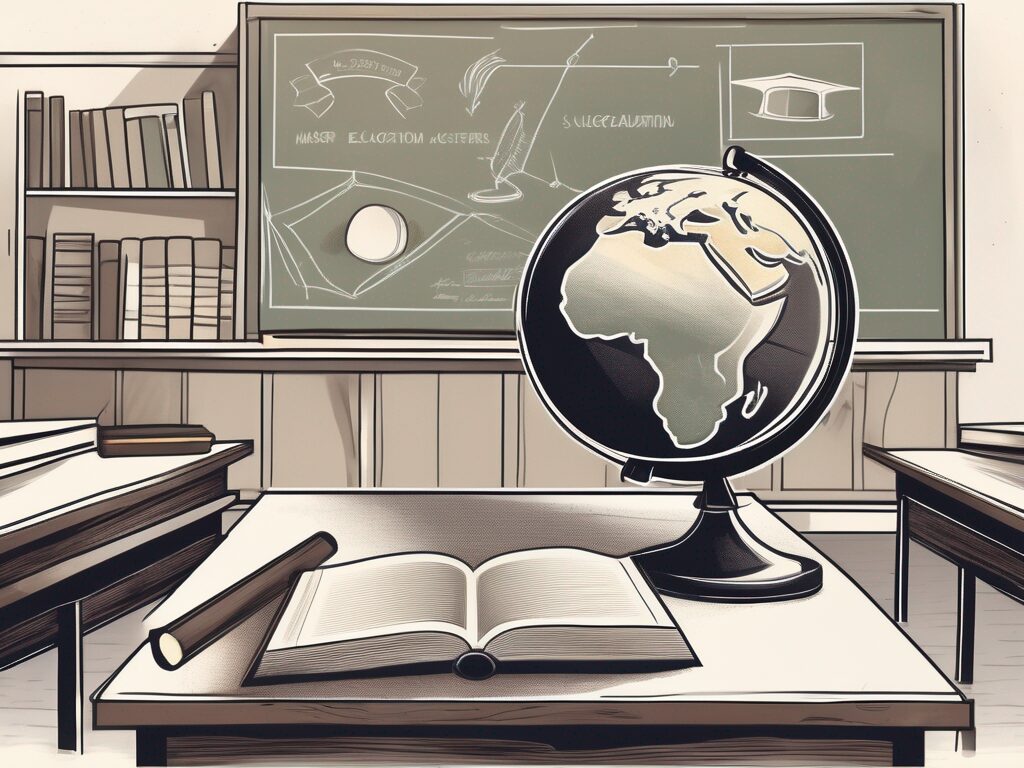In the dynamic world of education, teachers are constantly seeking ways to enhance their teaching methods to better engage their students. For those who have pursued a Master’s in Education in Singapore, the journey doesn’t end at graduation. The real challenge begins when they step into the classroom, armed with their advanced knowledge and skills. In this blog post, we will delve into five effective teaching techniques that can be employed by educators with a Master’s in Education in Singapore.
1. Active Learning
Active learning is a teaching method that involves students in the learning process. It requires them to participate actively, rather than passively receiving information. This can be achieved through various activities such as group discussions, problem-solving tasks, or hands-on experiments.
For educators with a Master’s in Education, active learning is not a new concept. They have been trained to understand the importance of student engagement in the learning process. By implementing active learning techniques, they can encourage their students to take ownership of their learning, leading to better understanding and retention of knowledge.
Active Learning vs Traditional Learning
Compared to traditional learning methods where students are passive recipients of information, active learning encourages students to think critically and apply their knowledge. This not only enhances their understanding but also develops their problem-solving and critical thinking skills, which are crucial in the 21st-century workplace.
2. Differentiated Instruction
Differentiated instruction is a teaching approach that involves tailoring the teaching methods and instructional materials to meet the diverse learning needs of students. This can be done by adjusting the content, process, product, or learning environment based on the students’ readiness, interest, or learning profile.
With a Master’s in Education, teachers are equipped with the knowledge and skills to implement differentiated instruction effectively. They understand that each student is unique and learns in different ways. By providing differentiated instruction, they can cater to the individual learning needs of their students, ensuring that all students can learn and succeed.
Differentiated Instruction vs One-size-fits-all Approach
Unlike the one-size-fits-all approach where all students are taught the same way, differentiated instruction recognises the diversity in the classroom. It allows teachers to cater to the individual learning needs of their students, ensuring that each student can learn at their own pace and in their own way. This leads to better student engagement and learning outcomes.
3. Technology-Integrated Learning
Technology-integrated learning involves the use of technology to enhance the learning process. This can be done through various ways such as using educational apps, online learning platforms, or digital tools for collaborative learning.
For educators with a Master’s in Education, they are well-versed in the use of technology in education. They understand the potential of technology to enhance learning and are adept at integrating technology into their teaching. By doing so, they can make learning more engaging and relevant to their digital-native students.
Technology-Integrated Learning vs Traditional Learning
Compared to traditional learning methods, technology-integrated learning can make learning more engaging and interactive. It allows students to learn at their own pace and provides them with a wealth of resources at their fingertips. Moreover, it prepares students for the digital age, equipping them with the digital literacy skills needed in the 21st-century workplace.
4. Inquiry-Based Learning
Inquiry-based learning is a student-centred approach that involves students in the process of exploring the natural or material world, leading to asking questions, making discoveries, and rigorously testing those discoveries in the search for new understanding.
Teachers with a Master’s in Education are trained to facilitate inquiry-based learning. They understand the importance of fostering curiosity and encouraging students to ask questions. By implementing inquiry-based learning, they can stimulate students’ curiosity and promote deeper understanding.
Inquiry-Based Learning vs Traditional Learning
Unlike traditional learning where teachers are the primary source of knowledge, inquiry-based learning encourages students to take the lead in their learning. It fosters curiosity and encourages students to ask questions, promoting deeper understanding and lifelong learning.
5. Collaborative Learning
Collaborative learning is a teaching strategy that involves students working together to achieve a common goal. This can be done through group projects, peer tutoring, or cooperative learning activities.
With a Master’s in Education, teachers are skilled in facilitating collaborative learning. They understand the importance of teamwork and cooperation in learning. By implementing collaborative learning, they can foster a sense of community in the classroom and enhance students’ social and communication skills.
Collaborative Learning vs Individual Learning
Compared to individual learning, collaborative learning encourages students to work together and learn from each other. It fosters a sense of community in the classroom and enhances students’ social and communication skills. Moreover, it prepares students for the future workplace, where teamwork and collaboration are highly valued.
In conclusion, a Master’s in Education equips teachers with the knowledge and skills to implement effective teaching techniques. By employing these techniques, they can enhance their teaching and better engage their students, leading to improved learning outcomes. So, whether you’re a seasoned educator or a newbie in the field, these techniques can certainly help you make a difference in your students’ learning journey.
Advance Your Teaching Career with iQTS
As you strive to implement the effective teaching techniques discussed, consider taking your professional development to the next level with The IQTS at UWE. Our International Qualified Teacher Status (iQTS) Programme is designed to help educators like you overcome the barriers of strict qualification requirements, enhance career progression, connect with professional communities, and gain a comprehensive understanding of global education systems. With our flexible online study options, you can balance your career advancement with your ongoing work commitments seamlessly. Don’t let the opportunity to become more adaptable and increase your chances for a promotion and a salary boost pass you by. Make Your Next Step towards achieving excellence in international education with the iQTS programme.

